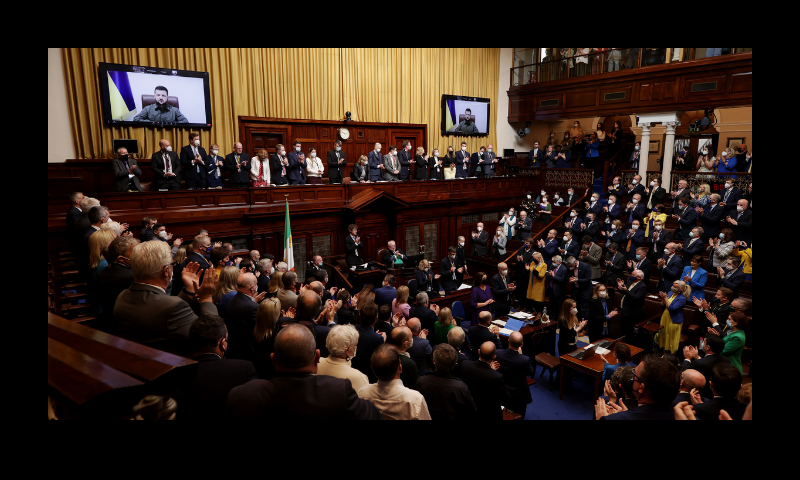Michael Brendan Dougherty
National Review, Jan. 7, 2023
“Americans tend to think of war as moral exercise conducted upon the earth, and many seem to believe that somehow the vigor for democracy displayed in the Ukraine conflict will dissuade China from its ambitions in Taiwan.”
‘Your money is not charity,” Volodymyr Zelensky told a joint session of the U.S. Congress a few weeks ago. “It is an investment in global security and democracy that we handle in the most responsible way.”
And many conservative hawks, hoping to hold back the rising tide of skepticism among Republicans, have echoed this line. After the speech, Representative Dan Crenshaw called the idea of ending aid to Ukraine “absurd” and said America had “made a pretty good investment here.” My friend and colleague Matthew Continetti writes that “securing America’s position and freedom’s future without direct intervention and for a rounding error in the federal budget is a strategic bargain. Ukraine needs more, not less, U.S. aid, and it needs it now.” In Commentary in November, Noah Rothman wrote that “Kyiv’s victories are our victories, too, insofar as they advance a core American national interest: preserving the stable European covenant that has blessed Western powers with the longest, most durable peace on the Continent in the modern age.”
This view holds that for pennies on the dollar, the U.S. has been able to preserve a democracy threatened by an authoritarian regime, cripple a rival military, strengthen the NATO alliance, prevent Vladimir Putin from an inevitable invasion of NATO territory, and scare off Xi Jinping from ever messing with Taiwan. For these conservatives, the policy preferred by Joe Biden and the Democrats is one whose costs are greatly outweighed by its benefits.
Except, none of this is quite true. Crippling a rival military is only worthwhile when you have a strategic reason for doing so, and we conspicuously lack one. The NATO alliance’s duties have been radically expanded with no radical expansion in the share of the alliance’s burdens shouldered by Europe. Ukraine’s ultra-nationalist project is at odds with the democratic and liberal-internationalist values that are used to sell the conflict abroad. The conflict’s financial and moral costs to the U.S. have been growing for nearly a decade, and taking on Ukraine as a permanent dependent will grow them even more. The arc of the conflict is just as likely to encourage as to discourage Xi in his pursuit of Taiwan, given the ways in which our enmeshment in Europe will deplete our attention, resources, and will to be the world’s cop. And finally, no conflict in this blood-stained area of the globe is a mom-and-pop bingo game in which you can cash out your modest investments at any time; Vladimir Putin and Russia have a say in how this ends. … [To read the full article, click here]


